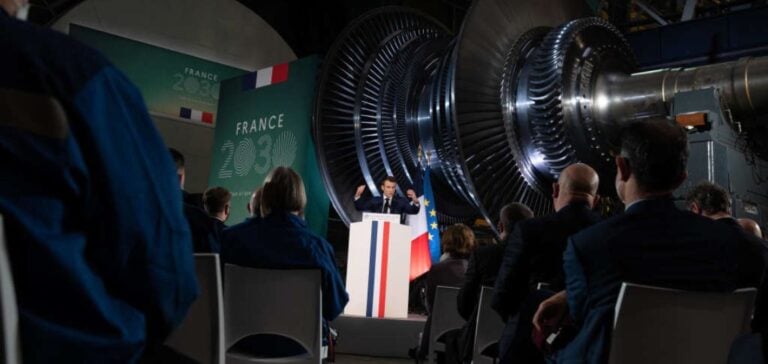On Wednesday, the French Council of State rejected the appeal for “excess of power” lodged in March 2022 by the environmental NGO Greenpeace in the wake of President Emmanuel Macron’s announcements on the extension of existing nuclear reactors and the construction of EPR2 reactors.
Legal validity confirmed following Greenpeace appeal
In a ruling consulted by AFP, the highest administrative court declared that the president, during a speech, had not demonstrated “an act liable to be the object of an attack by means of recourse for excess of power.” The appeal, filed in March 2022, was directed against the President’s speech in Belfort on February 10, 2022, in which he announced the extension of the lifespan of existing nuclear reactors and the creation of six new-generation reactors (EPR2), with the first two to be commissioned by 2035-2037 and studies launched for eight more.
Among the arguments raised, Greenpeace argued that these announcements contravened the 2015 Energy Transition Act and the Energy Roadmap (PPE) adopted by decree in 2020, which stipulate a reduction in nuclear power’s share of the French electricity mix to 50% with the gradual closure of reactors. Moreover, the NGO considered that “an incompetent authority” had taken the decision to relaunch a nuclear program, when it should have “been the subject of a decree issued by the Prime Minister”.
The Conseil d’État ruled that if the President, in his speech, had “expressed the wish” to relaunch nuclear power, “only future decisions, taken in accordance with the applicable legislative and regulatory provisions, [seraient] may be the subject of contentious appeal”. This autumn, the public authorities will be working on the energy-climate planning bill, which will set out the country’s energy strategy for moving away from fossil fuels and achieving carbon neutrality by 2050.





















